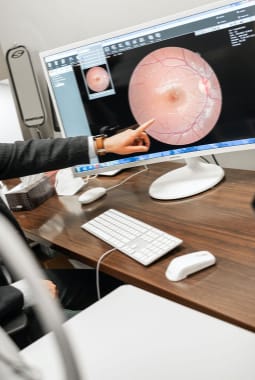Your Proactive Partner in Eye Health
Most of us don’t spend much time thinking about our eyes—that is, until something goes wrong. Eye health issues can be scary, particularly when you don’t know what’s going on or what to do next.
The optometrists at Optical Eyeworks are your source for primary eye care. We offer preventive care to keep your eyes healthy for longer, as well as eye disease management if you ever develop an issue.
With advanced diagnostic technology and experienced eye doctors, we can take a proactive approach to your ocular health.
Request your appointment today with our optometry team.











